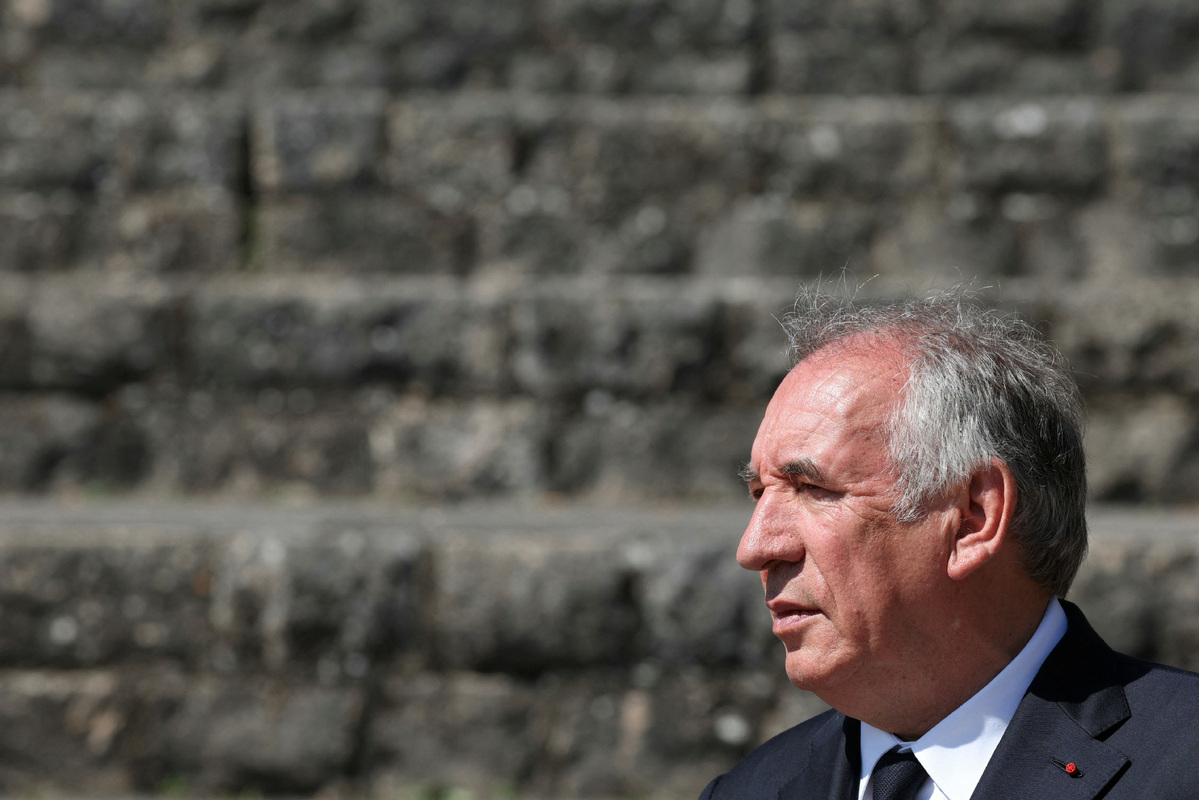France's Bayrou under pressure as contentious pension talks collapse


France's Prime Minister Francois Bayrou is under growing political pressure after talks on pension reform ended without agreement, triggering Socialist MPs to announce a motion of censure against his government.
The talks, which were launched in February, were seen as a last-ditch effort to find common ground between trade unions and employer groups. With no majority in parliament, Bayrou had relied on the Socialists' promise of neutrality in order to stay in power.
But as the talks dragged on with little progress, he stepped in more actively — first in mid-March by ruling out any return to retirement at age 62, and then, on June 17, by proposing an unclear "bonus" for seniors who choose to stay in work.
In the final days before the breakdown, Bayrou spent long hours on the phone with leaders from the unions and employers, including a key meeting with Patrick Martin, the head of MEDEF, or the Movement of the Enterprises of France, which is the country's largest business organization.
On Tuesday morning, he began a full day of meetings — first with the unions, and then with business groups.
"Our duty is not to give up and to do everything we can to overcome this deadlock," Bayrou said.
No official outcomes were shared from the meetings but, speaking in parliament later that day, Bayrou remained cautiously optimistic.
"My conviction is that there is a path that can help us get out of this impasse," he said.
But doubts remain. Marylise Leon, general secretary of the CFDT union, said after her meeting that the government must act quickly.
"The prime minister must decide by the end of the week what to do with what's currently on the table," said Leon.
That same day, Socialist MPs, including party leader Olivier Faure, announced a motion of censure. Faure said his party had predicted the outcome of the conclave from the beginning.
"Francois Bayrou gave MEDEF a veto, and they used it last night," Faure said in an interview with RMC radio on Tuesday.
Bayrou is also under fire from other union leaders.
Sophie Binet, head of the leftist CGT union, criticized the prime minister's last-minute efforts, telling private TV station BFM: "The prime minister is improvising completely and trying to buy more time. You can feel that there's panic at (the prime minister's official residence) Matignon this morning."
Still, Bayrou is pressing ahead with a final attempt to reach a deal.
Inside the government, opinions are divided.
A senior figure close to President Emmanuel Macron blamed Bayrou's leadership style for the breakdown.
"If the conclave fails, it will be the failure of Bayrou's method," the official said.
Others say the blame lies more with the social partners.
"If there's no agreement, we'll conclude that the social partners are no more effective than the politicians," said Bruno Millienne, a former MoDem MP and adviser to Bayrou.
Political scientist Bruno Cautres pointed to deeper issues in the French system, noting that the failed conclave follows other recent consultation efforts that also went nowhere.
"It shows there is clearly a dysfunction in the decision-making process, one that probably started even before 2022," Cautres said in an interview with the French daily Le Monde.
Despite the censure motion, the government is expected to survive because the far-right National Rally, or RN, has said it will not support the move.
RN Vice-President Sebastien Chenu told France Inter Radio on Wednesday: "Apart from creating disorder before the summer, there is nothing to gain from this censure. Francois Bayrou's time will come."
RN MP Jean-Philippe Tanguy also dismissed the motion, saying: "There's very little chance we'll vote for a censure on pensions, because it won't lower the retirement age from 64 to 62. That was never a red line for us."
Macron, speaking from Oslo, appeared to distance himself from the failure without naming Bayrou directly.
"Stability must not come at the cost of paralysis," Macron said.
The prime minister remains in office for now, but his political future may depend on whether he can turn this last attempt at consensus into something concrete.
The writer is a freelance journalist for China Daily.

































